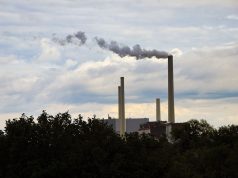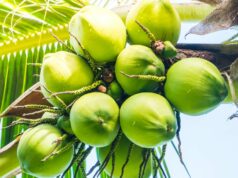COCA-COLA Beverages Philippines, Inc. (CCBPI) partnered with a Thailand-based firm to develop the P1 billion largest bottle-to-bottle recycling facility in the Philippines.
The Philippine bottling arm of Coca-Cola in a press release on Monday said it had signed a joint venture agreement with Indorama Ventures Public Co. Ltd. to build the facility in Cavite by 2021.
“Cavite being the site of such a crucial infrastructure to our World Without Waste goal is testament to the province’s commitment to help advance the country’s environmental goals,” CCBPI chief executive officer Gareth McGeown said.
World Without Waste is Coca-Cola’s aim to collect and recycle the equivalent of every bottle and can it sells.
The “PETValue” facility is expected to ensure that 100% recyclable PET (polyethylene terephthalate) plastic bottles can be collected and reused.
PETValue can process 30,000 metric tons of plastic per year, or the equivalent of two billion pieces of plastic bottles. The facility’s output amounts to 16,000 metric tons of recycled PET resin.
“Through this facility, we will boost the collection rates of clear plastic bottles — collecting not just Coca-Cola bottles , but even ones from other companies. The facility will also support Filipino jobs as well as the livelihoods of people within the waste value chain,” Mr. McGeown said.
Indorama Ventures is a global petrochemical and wool yarn firm. The company, which produces virgin PET resin, runs several PET recycling facilities worldwide.
Indorama Ventures chief recycling officer Yashovardhan Lohia said that the company uses technologies that meet industry standards to manage environmental impact.
“We firmly believe that a circular economy for plastic bottles, particularly PET plastic bottles, is possible and must be established. We cannot let the potential of this recyclable resource go to waste. This is a philosophy shared by Coca-Cola, and our partnership with them is testament to how two organizations that share the same principles can institutionalize sustainability practices among industries and be of benefit to local communities.”
Meanwhile, Nestlé S.A. signed the European Plastics Pact aiming to create 100% recyclable or reusable packaging and reduce the use of virgin plastics by a third by 2025.
The pact includes companies, governments, and non-government organizations.
Nestlé in a statement on Tuesday said that the company has invested in the production of food grade or safe plastics, and is trialling pet food and coffee refilling systems.
The company said it aims to signal recycling companies to focus on food grade material to create a new market, as it is currently cheaper to create packaging from virgin plastics.
Nestlé chief executive officer for Europe, Middle East and North Africa Marco Settembri said the company is pleased to join the commitment.
“One of our joint objectives is to create a circular economy by improving collection, sorting and recycling schemes across Europe. Already today a new Vittel plastic bottle is manufactured out of used ones. Tomorrow, we want to make sure that also other packaging, such as our wrappers and pouches, can be recycled into new food packaging.” — Jenina P. Ibañez



